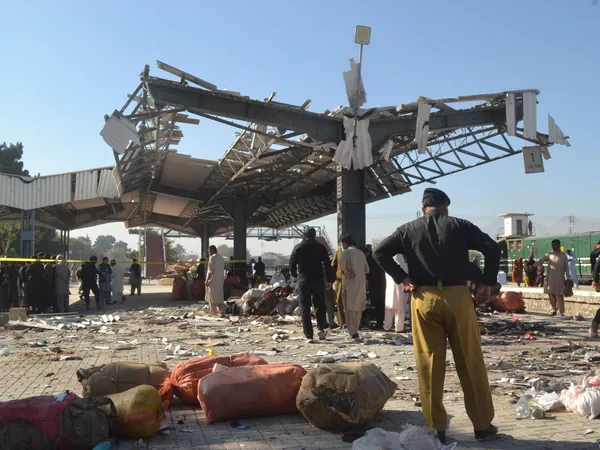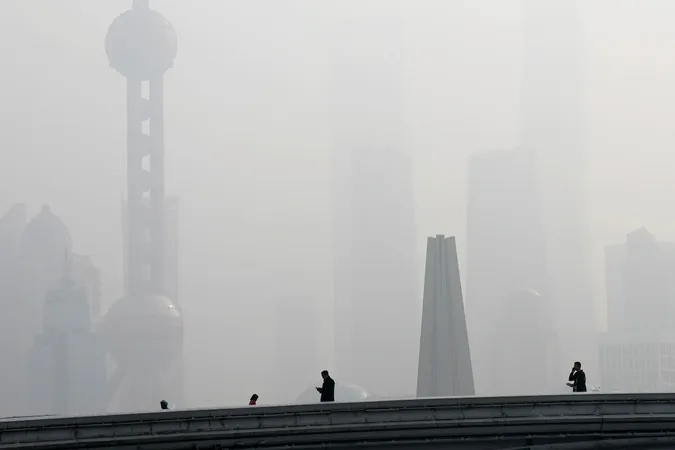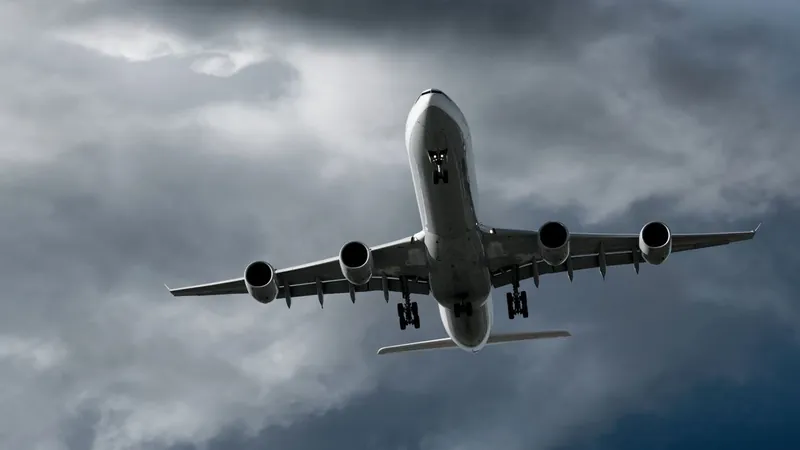
Tragedy Strikes Quetta: Deadly Railway Station Bombing Claims 26 Lives
2024-11-09
Author: Michael
Quetta, Pakistan — On a fateful Saturday morning, chaos erupted at Quetta Railway Station in Pakistan's Balochistan province as a devastating suicide bombing shattered the tranquility. Senior ticket inspector Ikhtiar Hussain had just arrived at the station around 8:25 am local time, ready to commence another day at work.
But mere moments later, a violent explosion rang out, sending shockwaves throughout the station. Hussain described the horrifying scene as he fell to the ground, bleeding from shrapnel wounds on his face. "It was like witnessing Judgement Day. In seconds, people who were smiling and chatting just moments before were lying on the ground in a bloodbath," he recalled from Civil Hospital Quetta, where he is receiving medical treatment.
The barbaric attack, which has left at least 26 people dead—including security personnel and civilians—was aimed at passengers waiting to board the Peshawar-bound Jaffar Express. Many more were injured, leading to a distressing scene of panic and desperation as bystanders rushed to help the wounded.
Authorities swiftly confirmed that this was indeed a suicide attack, raising immediate questions about security protocols at the station. Eyewitnesses have voiced their concerns, expressing disbelief that the bomber could infiltrate the heavily monitored area. Hafiz Allah Ditta, a local mason who was present at the time, stated, "Despite police checking bags at ticket booths, a bomber was still able to bypass security. The government must enhance safety measures to prevent such tragedies."
Taking responsibility for the heinous act, the Balochistan Liberation Army (BLA), a proscribed armed group, has emerged as the perpetrator behind the attack. As the nation mourns, Prime Minister Shahbaz Sharif and other political leaders condemned the violence against innocent passengers and pledged to hold accountable those responsible.
Balochistan has been increasingly plagued by violence in recent months, with various militant groups, including ISIL (ISIS) and Tehreek-e-Taliban Pakistan, intensifying their attacks. Just last week, a remote area near Quetta witnessed an IED explosion targeting a police vehicle, resulting in nine fatalities. The escalating turmoil in the region underscores the urgent need for a reassessment of security strategies to protect civilians.
In the aftermath of the bombing, Commissioner Hamza Shafqat confirmed that CCTV footage indicated the bomber entered the station posing as a passenger. This revelation raises unsettling questions about how security personnel could not detect the imminent threat.
As the community grapples with the aftermath, injured passengers are receiving care at local hospitals. Muhammad Amir Rafique, a railway employee on duty during the attack, described the harrowing moments that followed, "Smoke filled the air, and injured people were screaming for help, with lifeless bodies strewn across the floor. We quickly began assisting police and rescue workers in transporting the injured to ambulances."
The trauma of such a devastating event will linger in the hearts of those affected, challenging Pakistan to confront its ongoing battle against extremism while fostering a safer environment for its citizens.









 Brasil (PT)
Brasil (PT)
 Canada (EN)
Canada (EN)
 Chile (ES)
Chile (ES)
 España (ES)
España (ES)
 France (FR)
France (FR)
 Hong Kong (EN)
Hong Kong (EN)
 Italia (IT)
Italia (IT)
 日本 (JA)
日本 (JA)
 Magyarország (HU)
Magyarország (HU)
 Norge (NO)
Norge (NO)
 Polska (PL)
Polska (PL)
 Schweiz (DE)
Schweiz (DE)
 Singapore (EN)
Singapore (EN)
 Sverige (SV)
Sverige (SV)
 Suomi (FI)
Suomi (FI)
 Türkiye (TR)
Türkiye (TR)